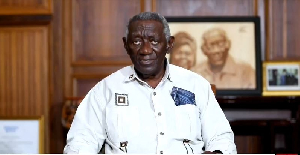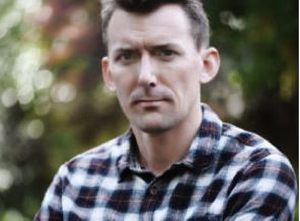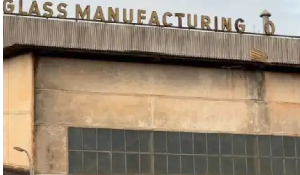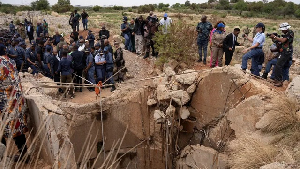"All crises are judgments of history that call into question an existing state of affairs. They sift and sort the character and condition of a nation and its capacity to respond. The deeper the crisis, the more serious the sifting and the deeper the questions it raises. At the very least, a crisis raises the question “What should we do?” Without that, it would not amount to a crisis." Os Guinness
These words resonate with the times we live in. Our world is in crisis. The enemy is invisible yet we cannot deny its horrific effects. The threat of the virus is based on the fact that its kind has never been identified in humans, and presently, we don’t have full answers on how to adequately manage and cure it. The Coronavirus pandemic is a VUCA situation. The model VUCA addresses a world of uncertainty, where occurrences are Volatile, Uncertain, Complex and Ambiguous – hence the acronym.
Volatility of COVID-19: New cases and deaths continue and as yet, for the most part, there are no signs of COVID-19 being fully brought under control.
Uncertainty of COVID-19: Dr. Anthony Fauci, an American Physician and a lead member of the USA’s Coronavirus Task Force has said, "You don't make timeliness, the virus does." The virus is difficult to predict because we are still learning. Unfortunately, while we learn to cope and deal with the virus, lives, jobs, businesses and many other things are being lost. This places leaders in a very precarious situation.
Complexity of COVID-19: Approximately a quarter of the world’s population is in lockdown. The virus has had a crippling effect on health systems, economies and altered every facet of our society ie: family, education, government, science & technology, media, business and culture. With every decision, governments and organisations are beset with multi-layered dynamics that need to be carefully considered. In all of this, there's very little time to process everything to make the best decisions.
Ambiguity of COVID-19: The attitude, the spread and the impact of the virus is not linear hence the potential to misread, misinterpret and mix meanings is high. This makes it hard to quick-fix the problem. We see nations continue to extend lockdowns and modify movement restrictions as a result of this.
As we all can tell, the COVID-19 pandemic is a global crisis. It represents an archetype of a major crisis that can affect individuals, organisations, nations or even continents. Crises are unannounced calls to test our readiness to solve problems. COVID-19 has created fear, panic, uncertainty of the future, loss of livelihoods and shattered world systems but leaders are afforded a rare opportunity to align with the core tenets of leadership. Of these tenets, four that are vital for these times are purpose, function, service and influence.
Purpose-Driven Leadership: In dealing with crisis, leadership must not respond in fear but in courage; spiritual, mental and moral strength to confront fear, danger or difficulty. Leaders display courage by providing direction and guidance to others. They do this by assessing the immediate impact of the crisis, put in place measures to manage day-to-day activities while forecasting weekly, monthly to quarterly activities as is possible in the moment. Crises require a keen eye to spot opportunities to innovate and provide temporary interventions outside “business as usual.” While providing direction, leaders must be transparent and honest with the people they lead in order to properly manage expectations. Proverbs 29:18 says where there is no vision, the people cast off restraint. Leaders must therefore ensure that the people they are responsible for don’t feel helpless because they don’t know what to do.
Functional Leadership: In dealing with crisis, leadership must be demonstrative. It is not enough to provide direction or guidance; leaders must lead from the front. It begins by the way existing teams are organised, being mindful of internal and external dynamics. Of all the things leaders can delegate, responsibility isn’t one of them. Taking responsibility and acting responsibly builds trust. When leaders are committed and dedicated to what they do, they earn the moral authority to demand same and more from others. Functional leadership is leading by doing and giving your team the needed motivation to press-on in the face of grave adversities. When the team begins to achieve results, even the minutest results, it can change the way crisis is viewed. This builds the confidence and the determination of individuals and groups to confront their fears, overcome great odds and achieve greater things. It’s important to note that from the onset, not everyone may follow but as momentum builds, it sparks a wave of belief that attracts others.
Service: Service is placing the welfare of people first. Leaders must pay attention to the needs of the team. Caring is showing genuine interest and concern for people within and outside the organization. While ministering to the needs of the team, it is important to think outside the team and ask what can be done for the external community that provides relief or support. This creates a lasting bond that builds allegiance and strengthens ties. A leadership that cares is a leadership that serves; and a leadership that serves is a leadership the cares.
Influence: Inspiring and challenging others to buy into a cause or a vision and become evangelists of it. Inspiring people is being able to encourage them and create a sense of urgency in them to want to respond positively. But that’s just one aspect of influence. The other aspect is challenging them. This is when people get involved and immerse themselves in a course for greater good. About two weeks ago, a 99-year old veteran set himself a goal to raise money for the UK National Health Service. His goal was to raise £1,000 pounds ($1,250 or Ghc7,000) by walking the 82-foot length of his garden back and forth 100 times, using his walker for support before he turns 100 on April 30th 2020. To his surprise donations have been pouring in and as at Friday, April 24th, over £28,000,000 ($35,000,000 or Ghc200,000,000) has been raised. Imagine the kind of intervention this money will bring! Crisis is a time to touch hearts of people to make sacrifices. Major crises such as COVID-19 should serve as a basis to establish statues or structures to remind people and posterity of the crisis and condition them to respond appropriately to future ones. We must never come out of crisis the same. We must come out better than we were before.
This period, and for that matter, any major crisis is a defining moment. It may scare us but we must never let it paralyse us. It may grieve us, but we must never stop believing and hoping for the best in life. It may knock us down but we must rise again and put our hands to the plough. Even when it attacks us viciously, we must muster courage, draw strength from the depths of our beings and overcome it. And above all, may our hands be made strong by God.
About the Author
Michael Adote is a Life Coach; an avid believer in human potential. He is the founder of the Poimen Leadership Institute, a leadership development organization that provides professional coaching and training in Leadership.
He is also the founder of The Horesh Foundation, a non-profit organization committed to Build, Raise, Repair and Restore individuals in the identification and pursuit of their purpose.
He is the Division Director of Ghana Toastmasters, an organisation that is helping men and women from all walks of life develop their communication and leadership skills. He oversees network clubs in Accra, Tema and Kumasi.
He serves as a mentor on the Central Leadership Program. The program identifies and grooms young emerging Christian leaders and positions them as change-agents in Africa.
Opinions of Wednesday, 29 April 2020
Columnist: Michael Adote



















